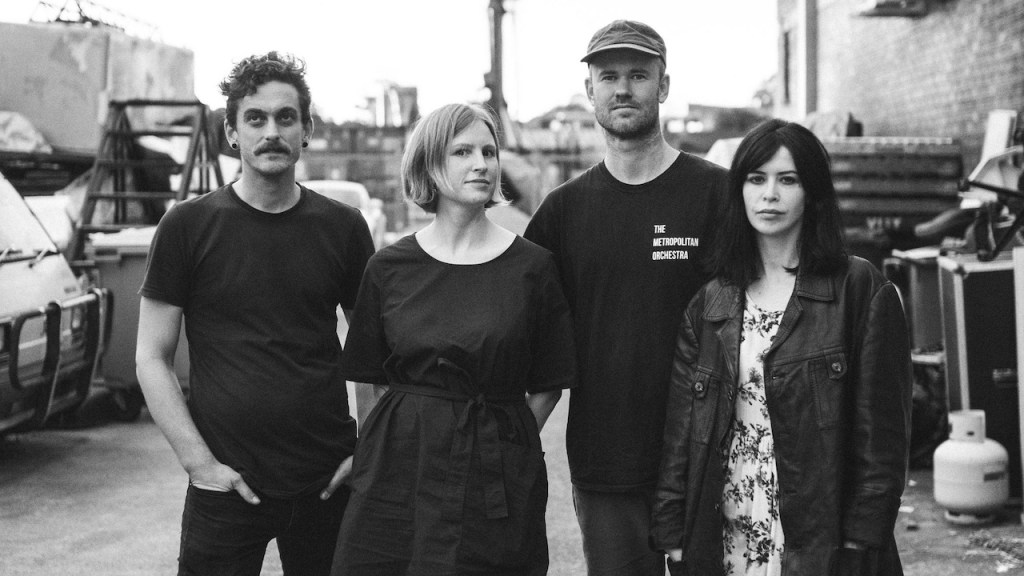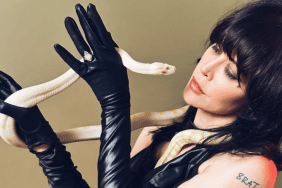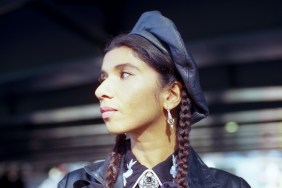If you’ve read an interview with Hayley Mary in the last couple of years, it’s been entirely focused on her solo career – be it her debut EP, her extensive touring or her upcoming debut album, which is being readied as we speak. You’d be forgiven for forgetting that the singer rose to fame at the helm of dramatic indie-rockers The Jezabels.
The Sydney quartet built up a cult following in the late 2000s before finding mainstream success in the early 2010s. Although a significant chapter in Mary’s career, it felt safe to assume she’d moved on – she doesn’t perform any Jezabels songs while playing solo, after all.
But that all changed when the band unexpectedly announced their reunion last year, and with it, an extensive tour of Australian theatres to commemorate the ten-year anniversary of their 2011 debut album, Prisoner. The foursome of Mary, guitarist Sam Lockwood, keyboardist Heather Shannon, and drummer Nik Kaloper are back together and offering audiences around the country a chance to relive the band’s glory days.
Music Feeds spoke to Hayley Mary about getting the band back together, making her second debut album, and why metalheads can’t get enough of The Jezabels.
Music Feeds: Before we get to the band’s new beginning, it seems pertinent to start at the band’s end. When things wrapped up in 2017 and you ultimately moved on to your solo project, was there a part of you that felt that The Jezabels were done for good?
Hayley Mary: At the time, we just didn’t want to keep feeding that growth machine. It was never this big thing of calling it quits, we’d just lost interest with keeping up with the stifle and didn’t want to force ourselves to write. If we’d done that, it wouldn’t have felt like it meant something.
MF: The time apart has given you all a chance to do your own thing – both yourself and Heather Shannon have released solo music, while Sam Lockwood has been making Goddess911. Has having those avenues affected how the band operates this time around?
HM: I’d say that’s true. It relieves a lot of pressure on the band for everyone. When you’ve been around for a long time, every individual in a band has these other elements of their personality and musicality that they’re kind of suppressing – if only because it doesn’t fit with what the band is. Having these other projects can actually make a band better to work within, rather than somehow threatening it.
Heather and I… I really do see us as career musicians. We have to keep going; this has to be our full-time job. So that’s what we did. I’ve always wanted to do my solo stuff, and when things stopped with The Jezabels I finally had a time and a place for it. I left The Jezabels behind a bit, in a sense – my solo songs are pretty different, and I don’t necessarily think Jezabels fans will always like them.
MF: Prisoner arrived at an interesting point in The Jezabels’ career. Normally a debut album arrives very early on – it’s often the first thing people will hear from a band or artist. But by the time Prisoner came out, the band was about four years and three EPs in. Having had that time to establish yourself, what was your mentality going in to make this record?
HM: I think what the EPs helped us establish was a concept. I feel like I say this almost every interview, but we have very different tastes musically. What unified us were these ideas of serving the same kind of concept. The fact that we did these three EPs was us asking ourselves how to develop this idea of a trilogy that ties together.
I think that really informed the mindset that we all had when we went into Prisoner – particularly myself, because I was like, “Okay, there’s a concept here.” When I came up with the line, “So you say you’re a prisoner,” it set off all these other ideas in my head – as if the whole thing could be sort of addressed to someone directly.
MF: The album debuted in the top five of the ARIA Charts, ‘Endless Summer’ was a top 40 hit and Prisoner was nominated for and won several awards. Were you taking in all of the success as it was happening, or was that a blur for you?
HM: Yeah, I don’t reckon I was taking it in, now I think about it. We got really busy, really quickly after the She’s So Hard EP, and it never really stopped. It’s all a bit of a whirlwind, that time up to putting out Prisoner and the time after it came out. We were playing maybe 150 or 200 shows a year and it was like, it was pretty chaotic.
MF: What does it mean to you to come back and play these songs again? Some, one would imagine, haven’t been touched for quite some time, even while the band was still active.
HM: There’s probably even a couple of songs that we haven’t ever played. Granted, they’re probably more the interlude-y sort of pieces like ‘Austerlitz’ and ‘Reprise’, but this will be our first time attempting to play them live. I feel like that’s maybe why people do these album tours – you put so much work into this album, and you really cherish it, but then ultimately you only ever really add a couple of songs into the rotation of your setlists after the fact. Most of it never really gets to see the light of day in the way that you hoped that it would.
Some of my favourite songs from the album are ones that we never really played – songs like ‘Deep Wide Ocean’ and ‘Catch Me’– which are really beautiful moments on Prisoner.
MF: You’re finishing work on your solo album, which, if we’re being pedantic, technically counts as your second debut album. Have you noticed any comparisons or contrasts between making the two albums as you’ve made the Hayley Mary record?
HM: It’s such a different approach between the two, I’ve found. I will say, the one thing I do notice is how I’ve been singing when I’ve been recording these new songs. With my solo stuff, I’ve only done sporadic shows because of all the cancellations. It was a lot harder to learn a whole new set without any solid touring behind it. Getting back into singing these Prisoner songs, I’ve gone back into where I feel my strength really is as a musician, which is singing. I’ve been applying these techniques that I learned early on in The Jezabels when I’ve been singing my solo songs, which has been great.
As for writing-wise, I’m not sure. I think I may have been a little bit influenced by my Jezabels side on the new stuff. With my first two solo EPs, I was really trying to burst out and be really different. Now, I feel like I’m embracing that side of me a little bit more.
MF: You’re in your 30s now, and the songs from Prisoner are obviously from a completely different part of your life. How do you reckon with your younger self when you sing these songs again?
HM: That’s a really interesting question. There’s a lot of themes that are present on Prisoner that I would say I am much less concerned with these days. To my younger self’s credit, however, it’s very rare that I’m absolutely certain. I’m the kind who really likes to ponder and debate with myself back and forth.
Even going back to a song like ‘Mace Spray’, you could say that’s a feminist song if you were being simplistic. What I was trying to do at the time, though, was ponder feminism as this bittersweet presence that has been forced into someone’s life. It was very easy for the press to latch onto The Jezabels as a feminist band – our name, our black clothing, wearing Docs, that whole image. I was never particularly certain of feminism at the time, though. I was interested in it and was always debating and battling with it.
Given this is essentially a nostalgia tour, though, I’m able to really pay homage to this moment in my career and my life. Even though I’ve changed since those days, I still have a lot of respect for it.
MF: We Lost The Sea are joining you on the Prisoner tour. That’s a band you wouldn’t necessarily associate with The Jezabels, given they’re a post-metal band and you’ve always been seen as more of an indie rock outfit.
HM: I think Sam suggested them, just because they’re a pretty epic-sounding band. Not many people ever picked up on this, but Prisoner itself was a little bit influenced by metal. If you listen to songs like ‘Nobody Nowhere’, it’s kind of present on that. Our producer, Lachlan Mitchell, was in a black metal band before he got into producing. Nik played in a lot of heavy bands before The Jezabels, too. I’ve also found out that we have a few Jezabels fans that are big metalheads, too.
MF: Really!
HM: [Laughs] I know! You wouldn’t pick it. They seem to particularly love this record. It’s not a metal album, obviously, but it does touch on a lot of dark stuff. It’s a very cool kind of fan to have, a metalhead.












